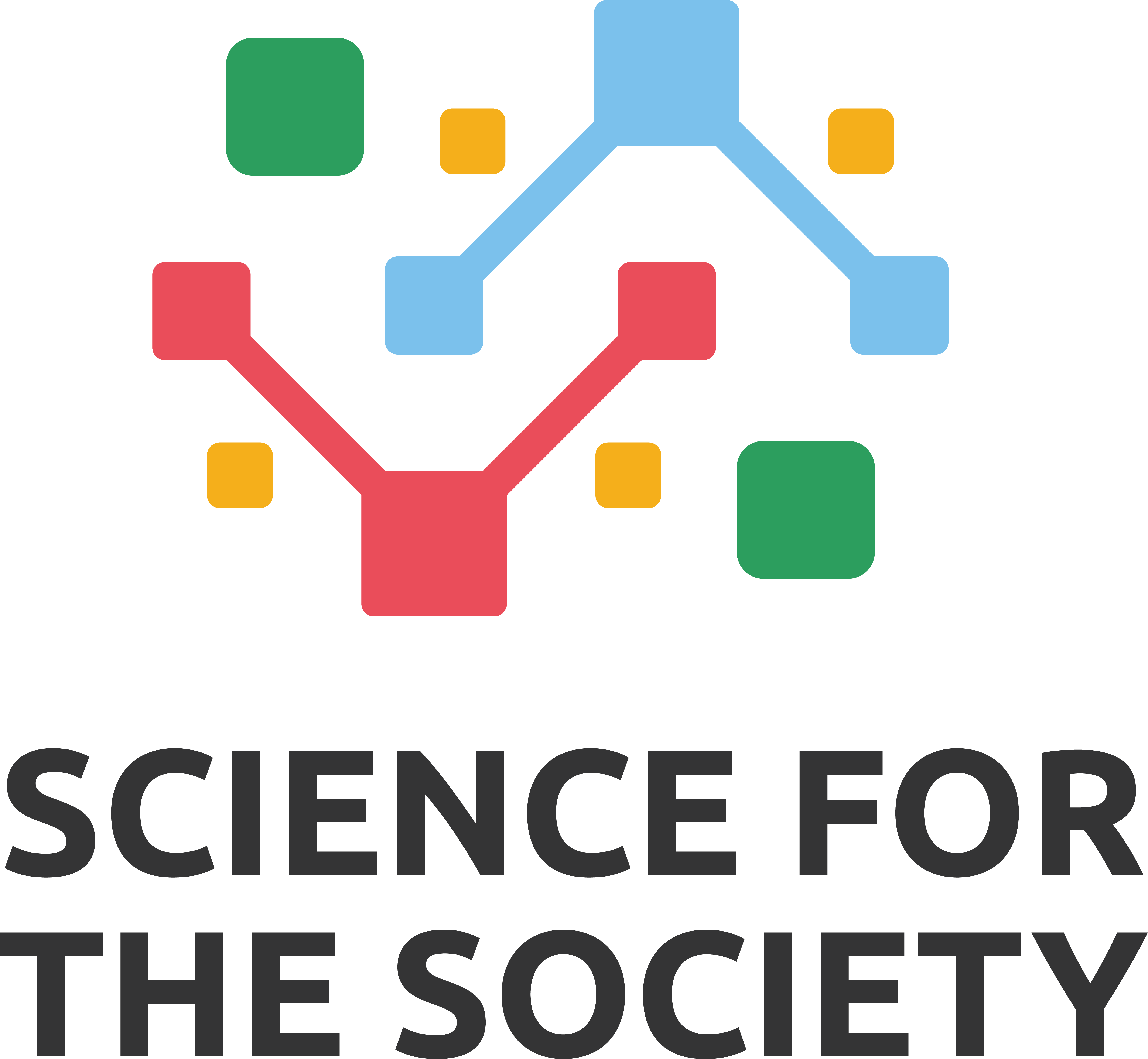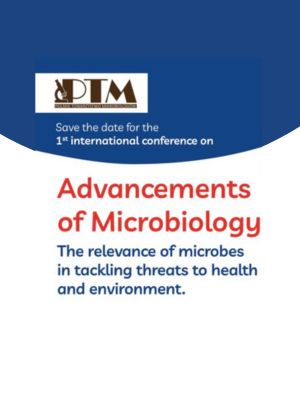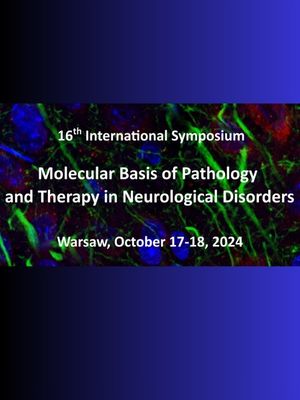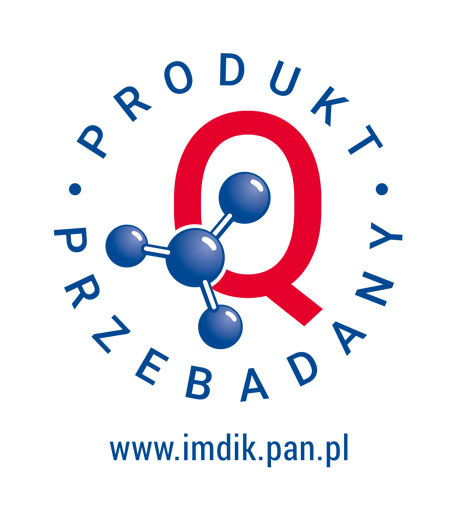Advancements of Microbiology 2025
MMRI PAS took patronage of the conference Advanvements of Microbiology 2025.
The team from our Protein Engineering Laboratory is involved in the organization of this event: the scientific committee of the conference includes Izabela Sabała, PhD and Elżbieta Jagielska, PhD who will also lead one of the sessions. Michal Zarod will give a lecture entitled: "YR_7, an innovative antimicrobial agent with high bactericidal activity against pathogenic Yersinia ruckeri infecting salmonid fish in aquaculture".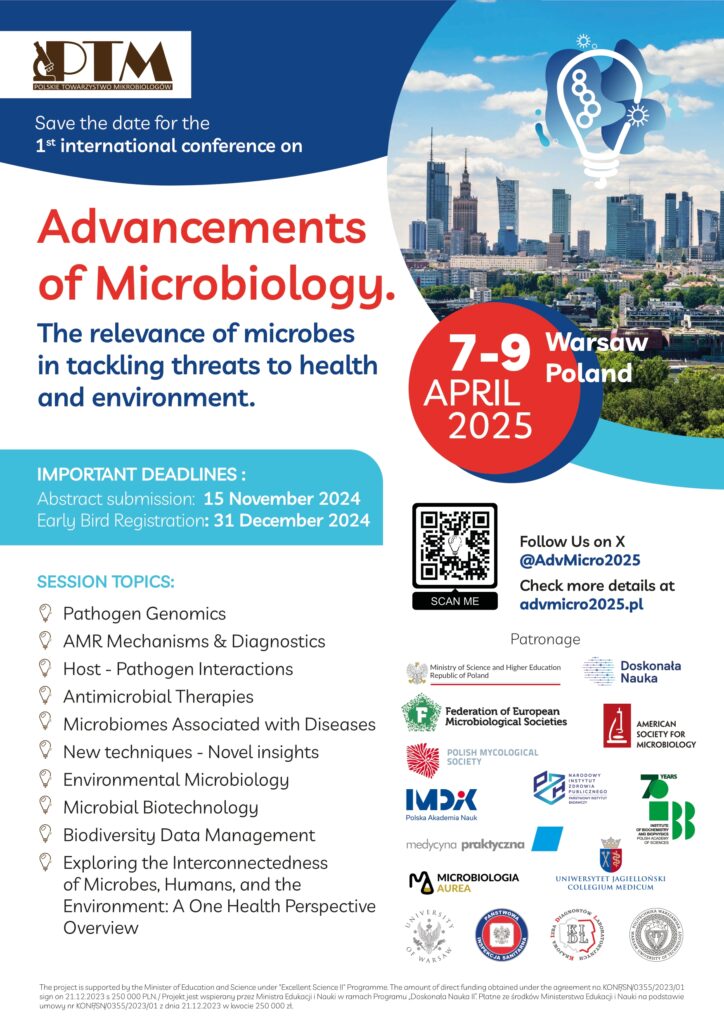
Neurological Disorders Symposium
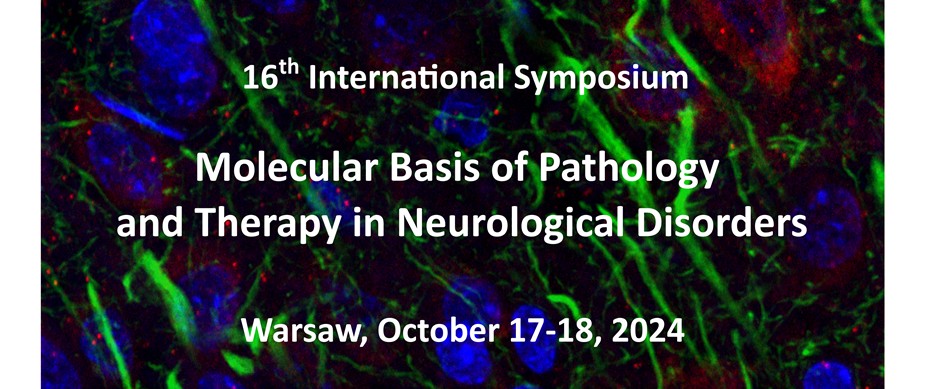
On October 17-18, 2024, Mossakowski Medical Research Institute, Polish Academy of Sciences in Warsaw, held an international conference entitled:
16th International Symposium: Molecular Basis of Pathology and Therapy in Neurological Disorders (ncs2024.imdik.pan.pl)
The symposium was part of a cyclical event taking place every two years.
The Conference Organizers:
Mossakowski Medical Research Institute, Polish Academy of Sciences
Committee on Neurobiology, Polish Academy of Sciences
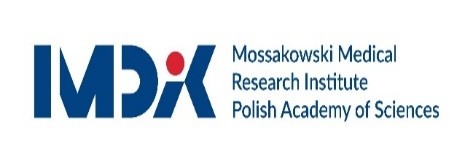
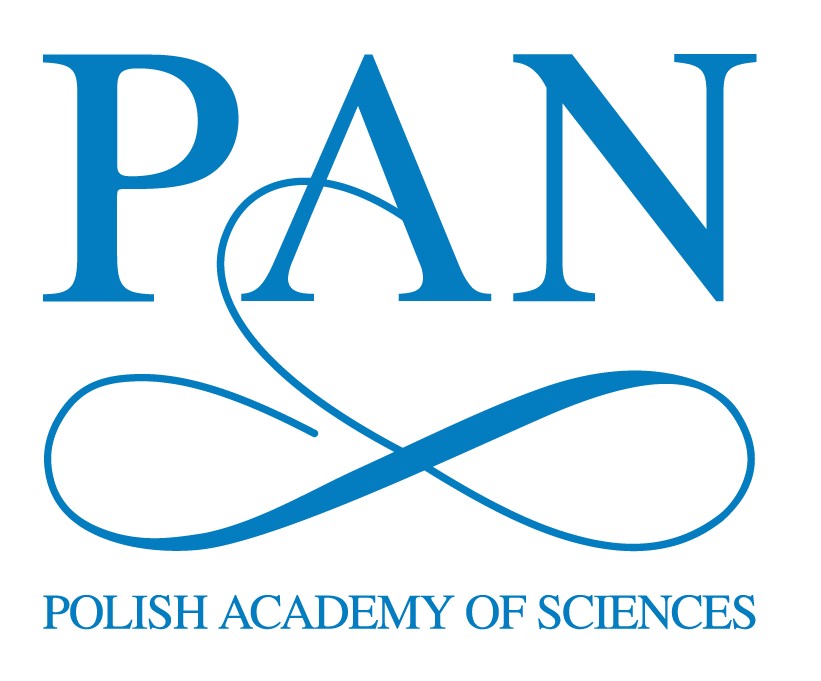
The event was supported by the Ministry of Science and Higher Education.
The project is co-financed from the state budget, allocated by the Minister of Science under the “Excellent Science II” Programme (Polska);po module “Support for scientific conferences”, contract no. KONF/SP/0259/2024/02
The contract was signed on 05/12/2024.


Ministry Funding: 88 500.00 zł
Total value of the project: 124 500.00 zł
The event included four thematic sessions dedicated to the latest advances in research on the molecular mechanisms of neurodegenerative and neurodevelopmental diseases, as well as the search for therapies. The conference provided an opportunity for young researchers in these areas to present their research findings.
Session topics:
- New paradigms in brain tumor therapy
- Neuroinflammation in neurodegenerative disorders: an overview of the underlying mechanisms
- Recent advances in therapeutic strategies for neurodevelopmental diseases
- New insights into mechanisms in neurodegenerative and neuromuscular disorders
The lectures were delivered by scientists from the country's leading research centers:
- Katarzyna Rolle (The Institute of Bioorganic Chemistry, PAS, Poznan, Poland)
- Anna Wilkaniec (Mossakowski Medical Research Institute, PAS, Warsaw, Poland
- Katarzyna Kuter (Maj Institute of Pharmacology, PAS, Cracow, Poland)
- Hanna Kletkiewicz (Department of Animal Physiology and Neurobiology, Nicolaus Copernicus University, Torun, Poland)
- Jan Mazela (Department of Neonatology, Poznan University of Medical Sciences, Poznan, Poland)
- Luiza Stanaszek (NeuroRepair Department, Mossakowski Medical Research Institute Polish Academy of Sciences, Warsaw, Poland
- Malgorzata Zaremba (Department of Experimental and Clinical Pharmacology, Centre for Preclinical Research (CePT) Medical University of Warsaw, Poland)
- Marek Konop (Department of Experimental Physiology and Pathophysiology, Laboratory of Centre for Preclinical Research, Medical University of Warsaw, Poland
- Michal Wegrzynowicz (Laboratory of Molecular Basis of Neurodegeneration, Mossakowski Medical Research Institute, PAS, Warsaw, Poland)
from abroad:
- Sean Lawler (Legoretta Cancer Center Brown University, Providence, USA
- Katrin Lamszus (Dept. of Neurosurgery, University Medical Center Hamburg-Eppendorf, Hamburg, Germany)
- Guy C. Brown (Department of Biochemistry, University of Cambridge, Cambridge, United Kingdom)
- Shreyasi Chatterjee (Department of Biochemistry, School of Science and Technology, Nottingham Trent University, Nottingham, United Kingdom)
- Julien Puyal (Department of Fundamental Neurosciences, University of Lausanne, Switzerland)
- Silvia V. Conde (NOVA Medical School, Faculdade de Ciências Médicas, Universidade Nova de Lisboa, Lisbon, Portugal)
and young researchers:
- Adrian Szczepaniak (Mossakowski Medical Research Institute, PAS, Warsaw, Poland)
- Karolina Ziabska (NeuroRepair Department, Mossakowski Medical Research Institute, PAS, Warsaw, Poland)
- Aleksandra Skweres(Laboratory of Molecular Basis of Neurodegeneration, Mossakowski Medical Research Institute, PAS, Poland
Sponsors:

We thank very much the participants and Sponsors of this year's Conference for their participation and support!
We look forward to see you at the next Symposium in the series in 2026!
World Rare Disease Day 2025
"Rare diseases in a multidimensional perspective" Conference
For eight years now, as part of the celebration of World Rare Disease Day (rarediseaseday.org),
we have been co-organizing a unique event that brings together experts, researchers, patients and their families.

This year, we invite you to the Conference entitled "Rare diseases in a multidimensional perspective", which will take place on February 28, 2025 from 9:30 a.m. to 3:30 p.m. Participation in the event is free of charge, registration is required. The conference will be accompanied by workshops of the School of Molecular Genetics of the IMiD Foundation (registration), which will take place on February 27, 2025 at the IMiD.
The co-organizers of this important event are, in addition to our Institute, the Institute of Biochemistry and Biophysics of the Polish Academy of Sciences, the Institute of Mother and Child, the EB Polska Foundation, the Polish Biochemical Society and the Polish Alzheimer's Society.
This year's conference highlights the complexity of the issue of rare diseases, which require a coordinated approach - from diagnostics through therapy to comprehensive social support. These diseases are not only a medical challenge, but also a scientific, social and therapeutic one. During the conference, we will focus on the issues of access to therapy for Polish patients with rare diseases, the role of basic science and modern technologies, including artificial intelligence, in diagnostics and the creation of targeted drugs, as well as the importance of international cooperation, including the activities of the European Alliance for Rare Disease Research (EJPRD).
Although rare diseases affect a relatively small number of people, their impact on the lives of patients and their families is enormous.
By participating in this Conference, you will be able to learn about the latest achievements in research and therapy of rare diseases and gain insight into the problems of access to treatment and care in Poland. We also hope that participating in the Conference will become an inspiration to build a network of cooperation between scientists, clinicians and patient organizations.
This event is not only a space for exchanging knowledge and experiences, but also an opportunity to strengthen actions to improve the quality of life of patients with rare diseases.
Conference website: O konferencji - Choroby Rzadkie 2025
Publication in Nature Communications
The prestigious journal "Nature Communications" has published the results of groundbreaking research conducted at the Department of Immunology. Article titled “Harnessing macrophage-drug conjugates for allogeneic cell-based therapy of solid tumors via the TRAIN mechanism,” is co-authored by our two employees Marcin Skórzyński, and Tomasz Rygiel (corresponding author).
The study describes an innovative Macrophage-Drug Conjugate (MDC) platform. This technology utilizes macrophages’ natural ability to uptake ferritin-drug complexes through the macrophage scavenger receptor 1, enabling efficient drug loading. The research demonstrates that drug-loaded macrophages transfer ferritin to cancer cells via direct cell-to-cell contact and immune synapse-like structures.
The MDC platform has been successfully tested with various anti-cancer drugs, showing robust safety and anti-tumor efficacy in multiple syngeneic mouse and orthotopic human tumor models. A key advantage is its clinical practicality—MDCs can be pre-prepared, stored frozen, and used immediately, making them a promising new approach for real-world cancer therapy.
Congratulations to all authors!
https://pmc.ncbi.nlm.nih.gov/articles/PMC11790938/
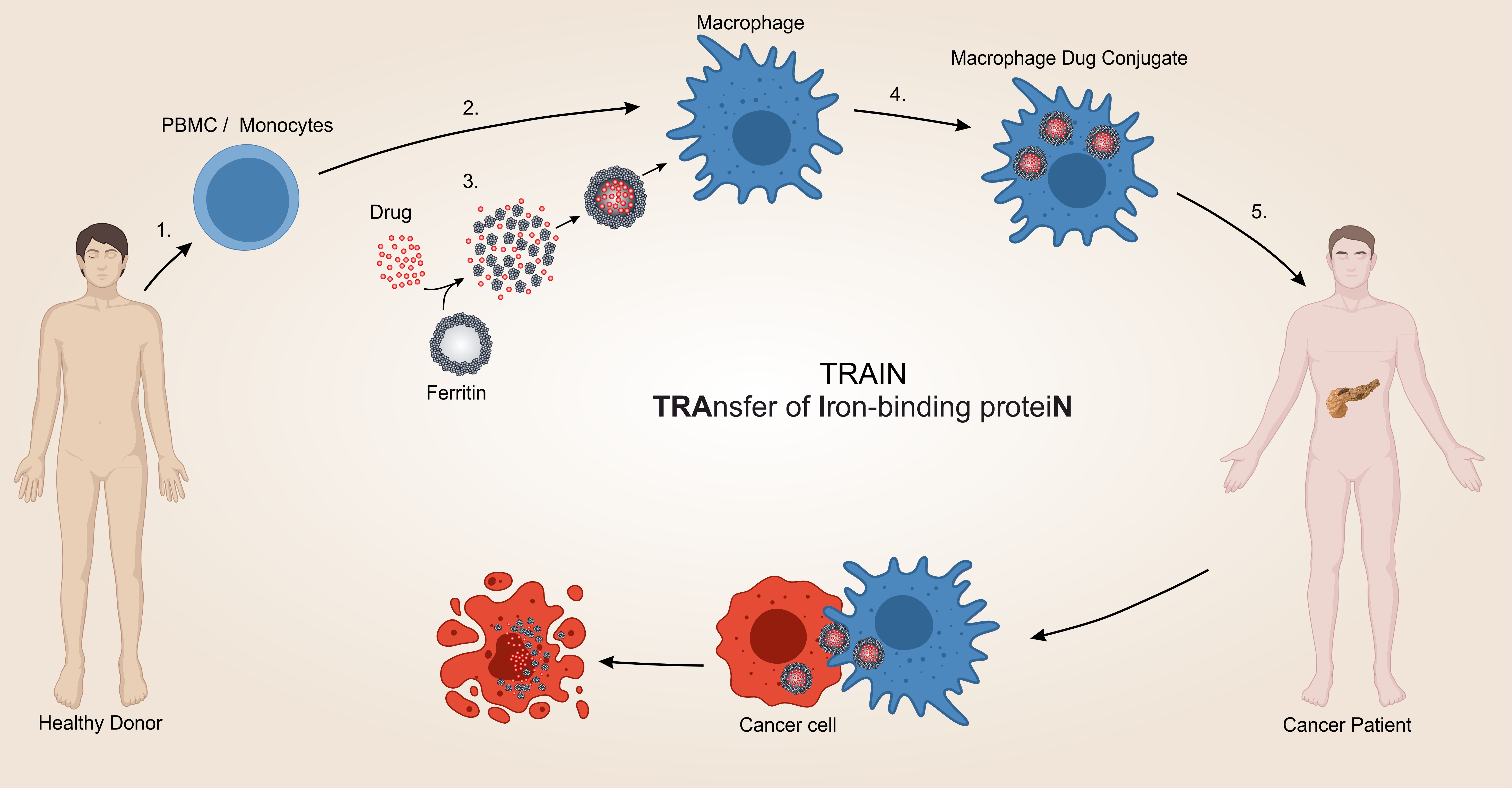
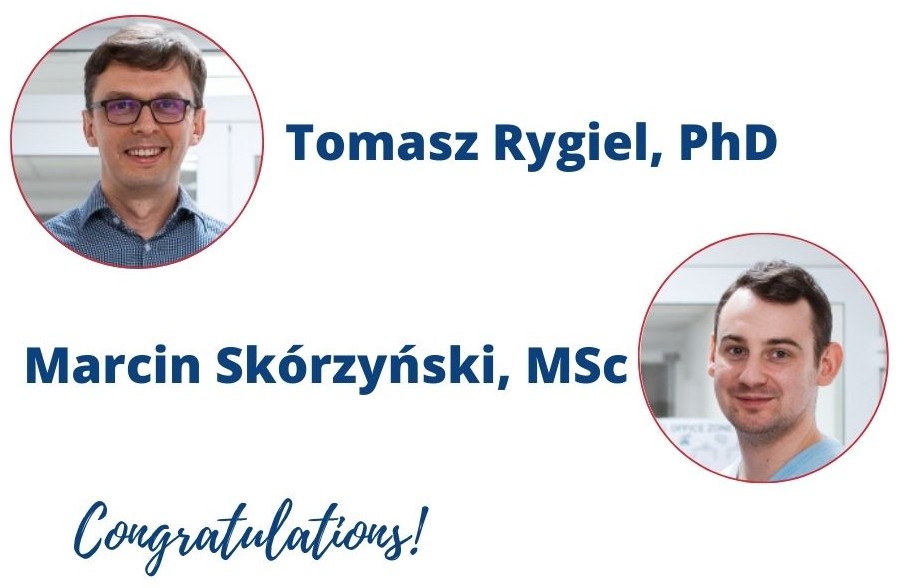
Cancer Fight Research Club-new season
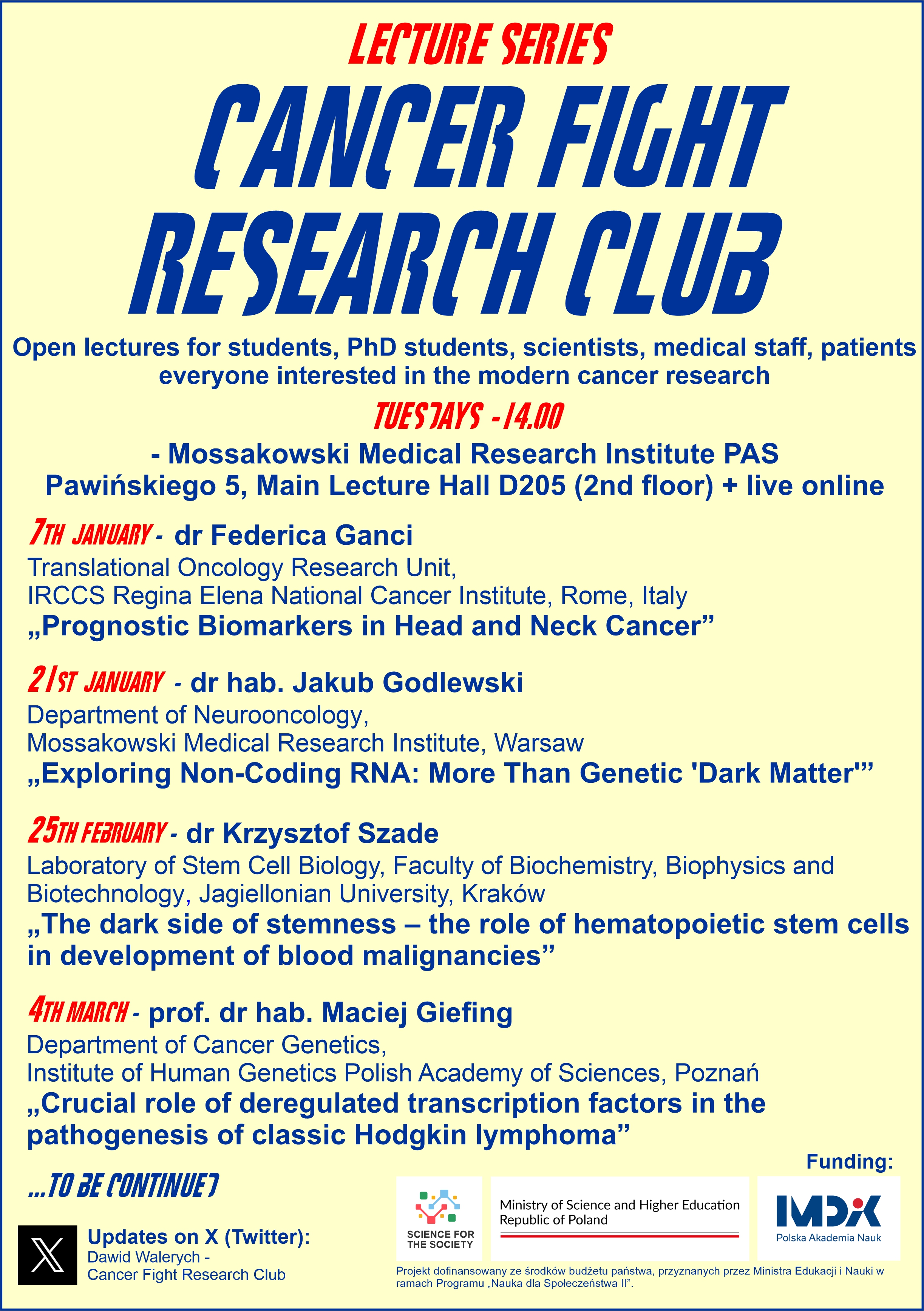
The project is financed from the state budget, allocated by the Minister of Science and Higher Education under the Science for the Society II Programme

